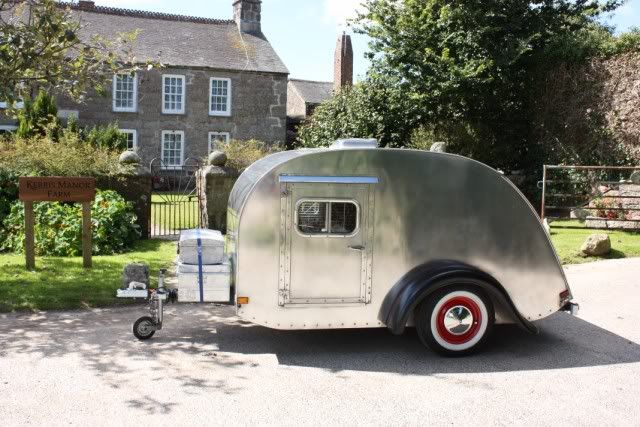I'm doing a cargo trailer conversion and am starting on the AC power circuit. I have a 30 amp inlet, 12-2 wiring from it to the breaker box. I will have two breakers one for each electrical plug in outlet inside the trailer. Each outlet will be wired with 12-2 wire from the circuit breakers. I was going to install a pair of 15 amp circuit breakers but then started to wonder if I should go with 20 amp, or possibly one 15 and one 20 amp. Appliances I will be running that would seem to consume the most are an 800 watt household microwave oven, a 5k btu window type air conditioner, an AC/DC power converter from a 1970's vintage motor-home, and occasionally a two burner electric counter-top stove. I would only envision the air conditioner, the microwave and the AC/DC converter running at the same time (I have a two burner propane stove that I will use externally for most of the cooking)
Any thoughts would be appreciated.
Don
Do I Need Greater Than 15 amp Circuit Breakers?
12 posts
• Page 1 of 1
Do I Need Greater Than 15 amp Circuit Breakers?
On the road to Shambala...
http://www.youtube.com/watch?v=PDpVS7D9AJs
http://www.youtube.com/watch?v=PDpVS7D9AJs
-

d30gaijin - Titanium Donating Member
- Posts: 594
- Images: 139
- Joined: Sat Jun 12, 2010 9:27 pm
- Location: Boise, Idaho
Check out the Breaker Box on your House. The various Branch Breakers add up to more than the typical 150 Amp or 200 Amp Mains Breaker amperage.
You will have little Trailer surges that will trip a 15 Amp Breaker, and these events will be a PITA. When the A/C Compressor kicks on AND the Hot Plate cycles on/off, 15 Amp Breakers [as at our '87 Tract House] will open very occasionally. Microwaves also 'surge' as they cycle to cook.
Consider going with all 20 Amp Branch Breakers with 12 AWG Wire. If any combo of items exceeds 30 Amps, either your 30 Amp Breaker will open, or the 30 Amp RV Park Breaker will open safely. ~30 Amps is also about the max value trip point on 4 kW Generators, so you're covered regardless of any typical Shore Power input.
In the fine print, Breakers open at faster trip times depending on the overload current relative to their rating. So, at a typical 125% overload condition, any Breaker opens 'faster' than at 110% of rating. This Breaker characteristic will get you through some lil surge events, but not all.
This idea safely meets Housing Electrical Codes.
You will have little Trailer surges that will trip a 15 Amp Breaker, and these events will be a PITA. When the A/C Compressor kicks on AND the Hot Plate cycles on/off, 15 Amp Breakers [as at our '87 Tract House] will open very occasionally. Microwaves also 'surge' as they cycle to cook.
Consider going with all 20 Amp Branch Breakers with 12 AWG Wire. If any combo of items exceeds 30 Amps, either your 30 Amp Breaker will open, or the 30 Amp RV Park Breaker will open safely. ~30 Amps is also about the max value trip point on 4 kW Generators, so you're covered regardless of any typical Shore Power input.
In the fine print, Breakers open at faster trip times depending on the overload current relative to their rating. So, at a typical 125% overload condition, any Breaker opens 'faster' than at 110% of rating. This Breaker characteristic will get you through some lil surge events, but not all.
This idea safely meets Housing Electrical Codes.
~Reality proceeds with or without your consensus~
-

Engineer Guy - The 300 Club
- Posts: 480
- Images: 118
- Joined: Wed Mar 17, 2010 5:19 pm
- Location: W. CO



